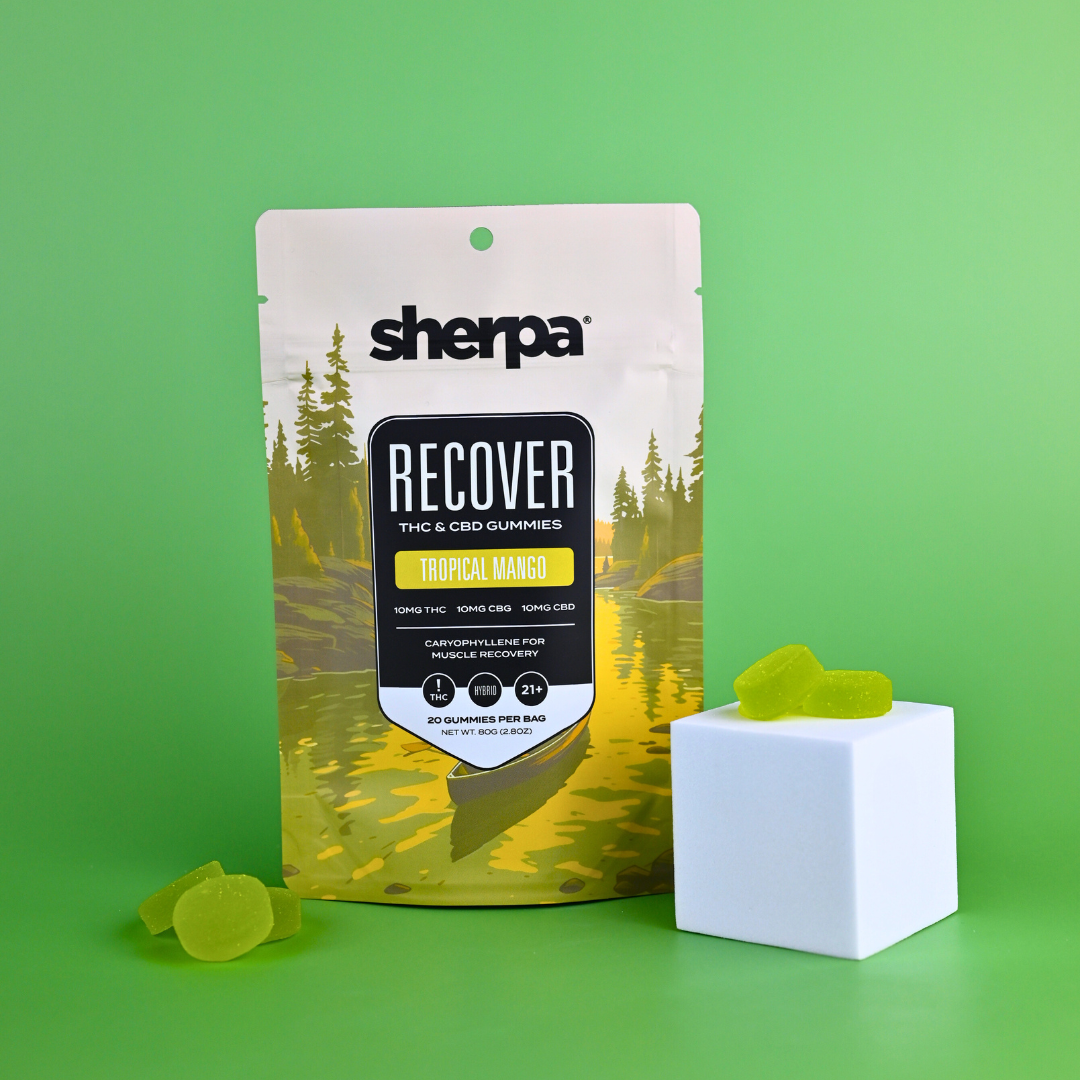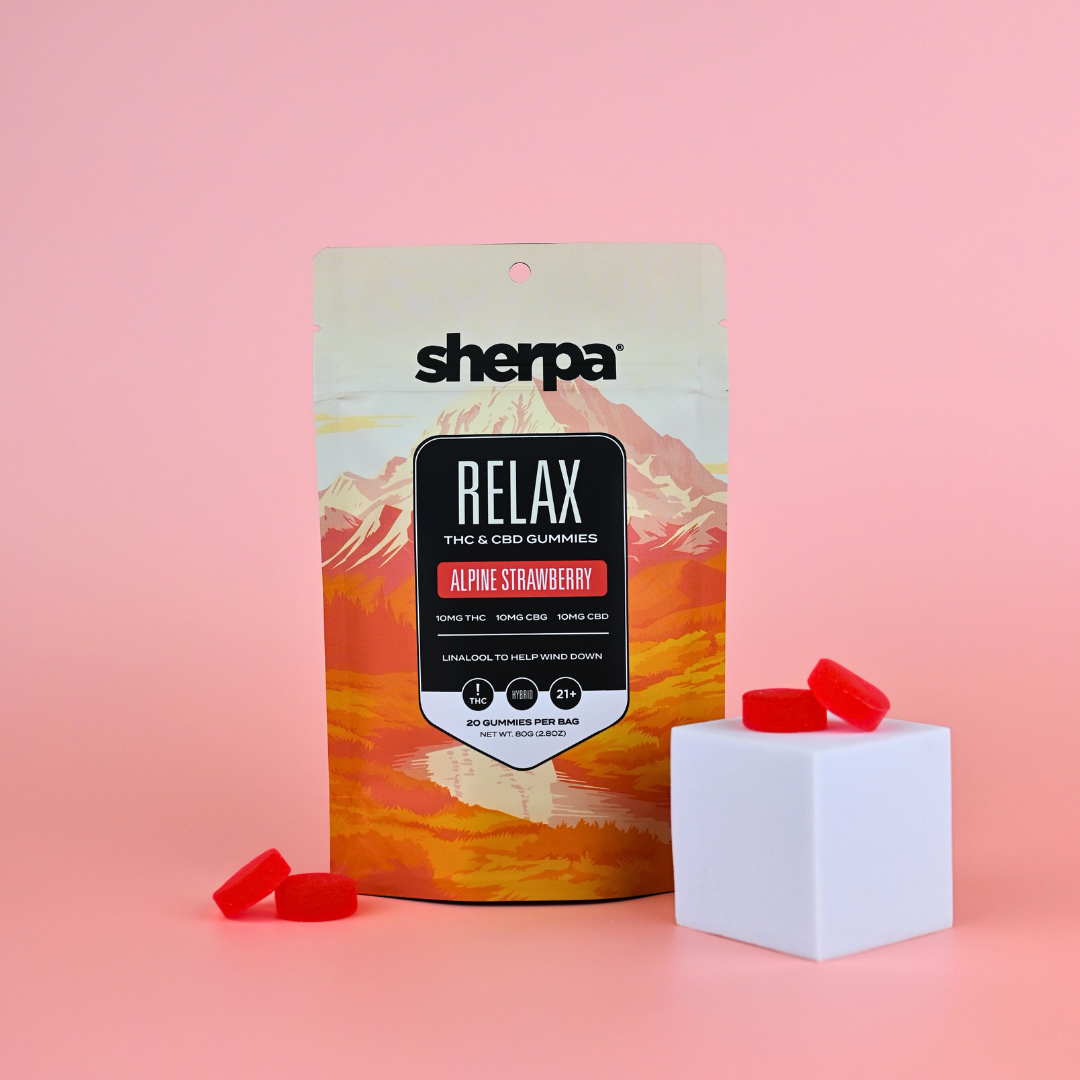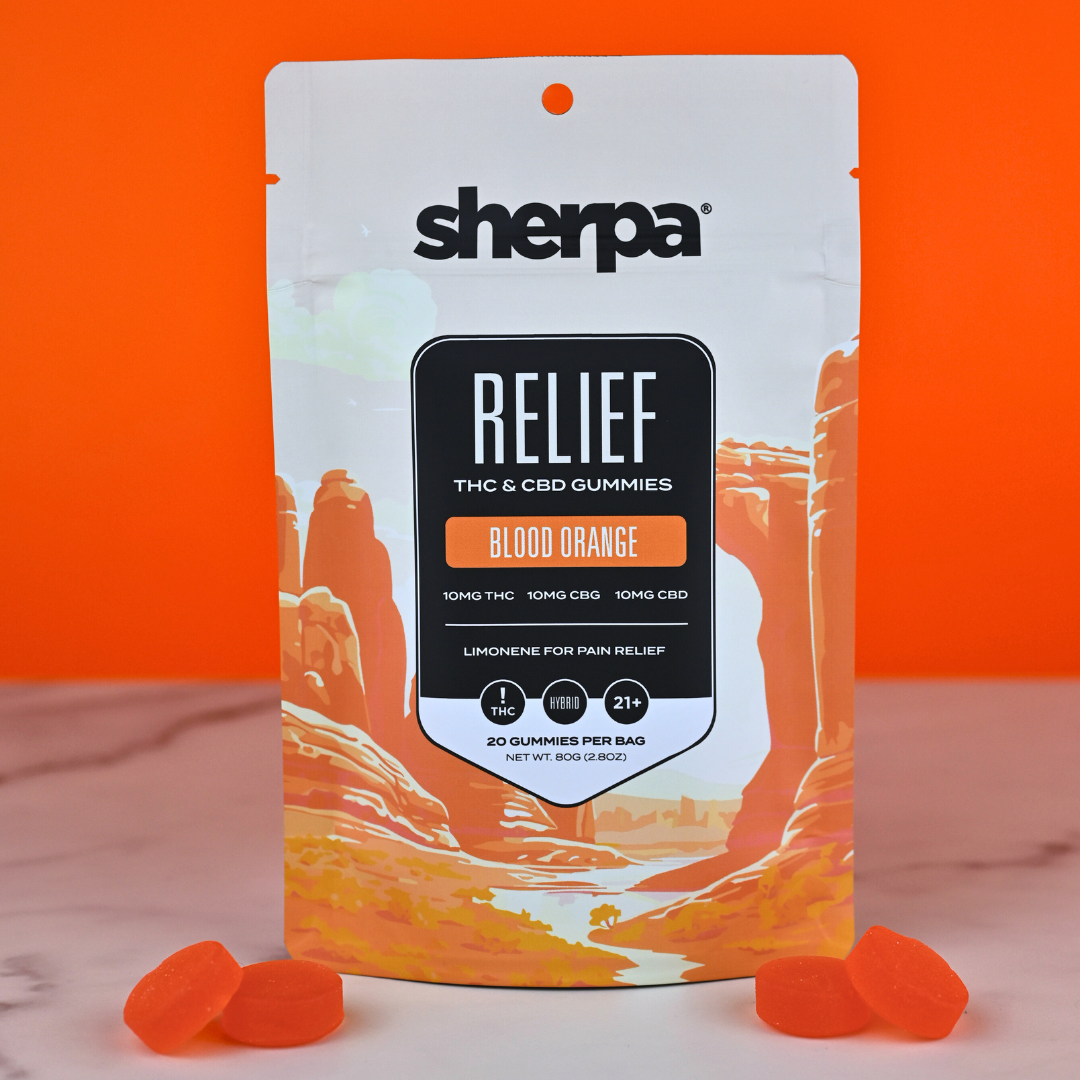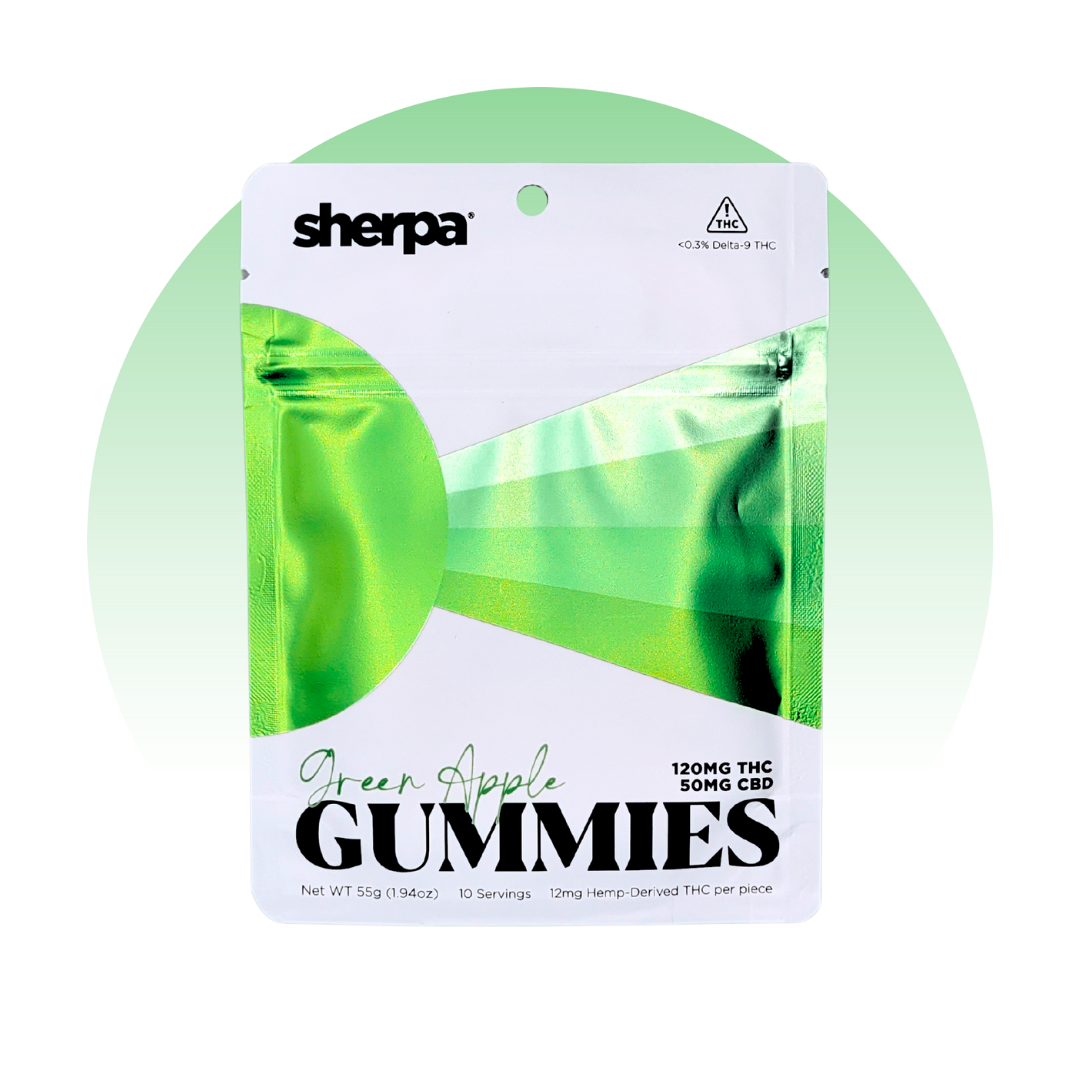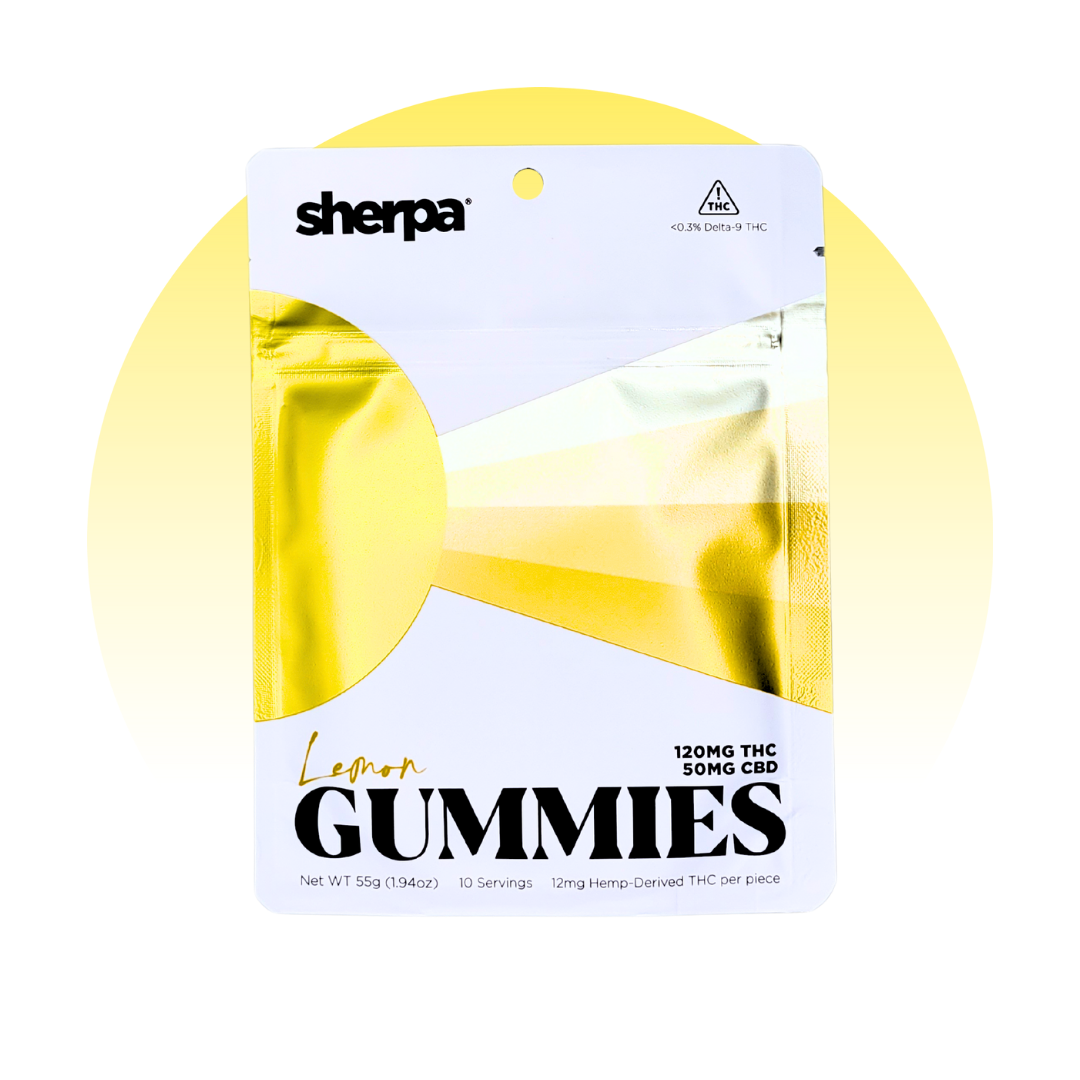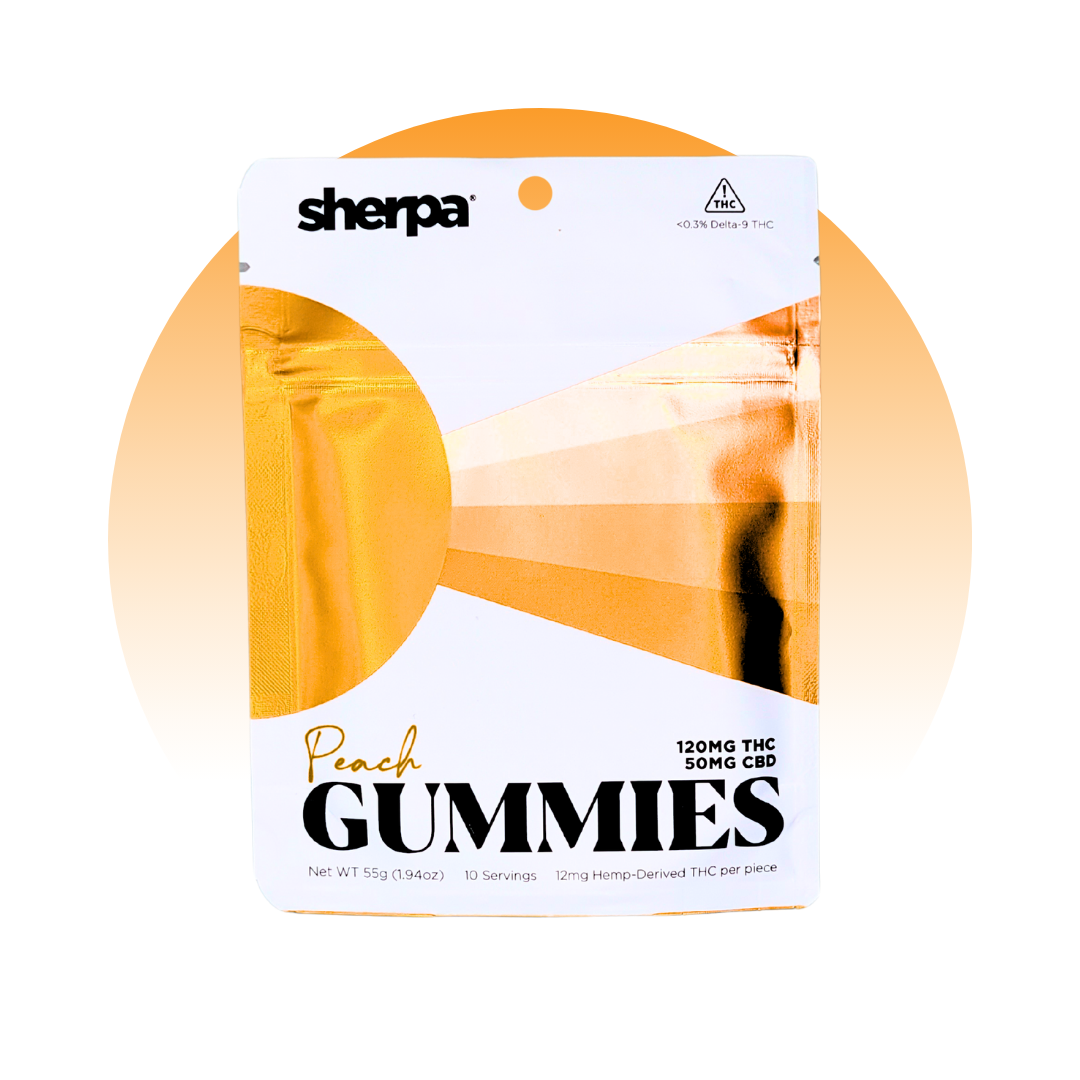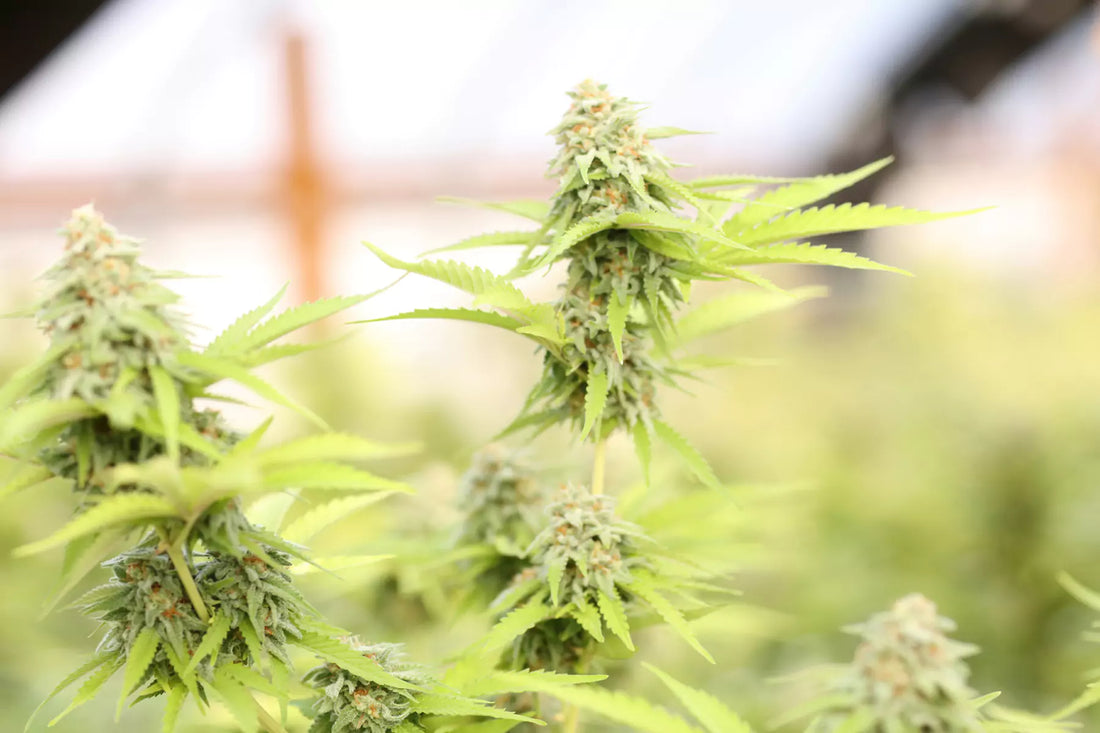
Our Blog
HHC vs. THC
HHC vs. THC
Cannabis is a deeply fascinating plant, containing hundreds of different chemical compounds within its leaves and flowers. Humans have utilized cannabis for medical and ceremonial purposes since time immemorial.
Today, we will explore two of these compounds — THC and HHC — to understand their effects, how they interact with the body, and what users can expect from them. Before we get to that, though, let's review some background information on the cannabis plant, the endocannabinoid system, and the cannabinoids in question.
Understanding the Cannabis Plant and the Endocannabinoid System
The cannabis plant, scientifically known as Cannabis sativa, has been cultivated for thousands of years for various purposes, including medicinal, recreational, and industrial applications. At the core of cannabis's popularity are numerous active compounds, primarily cannabinoids and terpenes, which interact with the body's endocannabinoid system — or ECS for short.
The Cannabis Plant and its Compounds
Cannabis contains over 100 identified cannabinoids, with tetrahydrocannabinol (THC) and cannabidiol (CBD) being the most well-known. THC is the primary psychoactive component responsible for the "high" associated with marijuana, while CBD is non-psychoactive and recognized for its potential therapeutic properties, such as reducing anxiety and inflammation. There are hundreds of other cannabinoids that are also being studied for their unique effects.
In addition to cannabinoids, cannabis produces terpenes — aromatic compounds that contribute to the plant's scent and flavor. Terpenes, such as myrcene, limonene, and pinene, enhance the sensory experience of cannabis and may also play a role in its therapeutic effects. This phenomenon, known as the "entourage effect," indicates that the combination of cannabinoids and terpenes can create synergistic effects, enhancing the plant's overall benefits. Kind of like the whole being greater than the sum of its parts, if you will.
But how exactly do these compounds interact with your body? Well, there's actually a special system for that.
The Endocannabinoid System and its Role
The endocannabinoid system is a complex network of receptors, endocannabinoids — the cannabinoids produced naturally by the body — and enzymes that maintain your body's internal environment. It wasn't discovered until the 1990s, but the ECS is found throughout the human body, including the brain, nervous system, immune system, and organs.
It functions using two primary types of cannabinoid receptors. They are:
- CB1 Receptors: Predominantly located in the central nervous system, these receptors are responsible for the psychoactive effects of THC, influencing functions like mood, memory, appetite, and pain perception.
- CB2 Receptors: Mainly found in the peripheral nervous system and immune cells, CB2 receptors regulate inflammation and immune response. Cannabinoids interacting with these receptors may have therapeutic potential without producing psychoactive effects.
How Cannabinoids Interact with the ECS
When cannabinoids from cannabis are consumed, they bind to the ECS's cannabinoid receptors. THC binds primarily to CB1 receptors, leading to its psychoactive effects. CBD, on the other hand, interacts more indirectly, affecting various non-cannabinoid receptors and modulating THC's effects.
The ECS plays a crucial role in maintaining homeostasis — ensuring the body's systems function optimally. When disrupted, it can lead to health issues, including chronic pain, anxiety, and inflammatory disorders. This is where the therapeutic benefits of cannabinoids from cannabis come in. They can help restore balance by influencing the ECS and its receptors.
So now that you have a pretty good idea of how all of this works biochemically, let's take a deep dive into the two cannabinoids we're examining.
What Is THC?
Like we said above, Tetrahydrocannabinol, or THC, is the primary psychoactive compound in cannabis. It is one of over 100 cannabinoids identified and is chiefly responsible for the "high" associated with marijuana. Because of this, THC has gained significant attention for both recreational and potential therapeutic benefits.
With that in mind, the effects of THC can vary widely based on consumption method, dosage, and the individual's biochemistry. Common effects include euphoria, relaxation, altered sensory perception, and increased appetite — often referred to as "the munchies." However, THC can also cause adverse effects, especially at high doses or for inexperienced users, including anxiety, paranoia, and impaired cognitive function. That's why you don't want to take too much too quickly.
In addition to recreational use, THC has been studied for medical applications. Research suggests THC may effectively treat various conditions, and it's sometimes used with other cannabinoids, like CBD to minimize adverse effects, creating a more balanced experience.
The medical uses of THC has led to various pharmaceutical products. One well-known product is Marinol, a synthetic form of THC prescribed for nausea and appetite stimulation. Another product, Syndros, is an oral solution containing THC used for similar purposes. These medications illustrate THC's potential benefits when used in a controlled, therapeutic context.
That said, THC use — both recreationally and medically — raises important considerations regarding legality, safety, and public health. As more states and countries legalize cannabis, establishing regulations to ensure safe access while addressing potential risks is crucial. Education about responsible use, particularly among adolescents and young adults, is really important since THC can impact brain development during critical growth periods.
Alright. Now that we have our arms around THC let's move on to its hydrogenated cousin, HHC.
What Is HHC?
Hexahydrocannabinol, or HHC, is an emerging compound in the broader landscape of cannabinoids. HHC is particularly notable for its unique chemical structure, which distinguishes it from other cannabinoids and influences its effects and potential applications.
HHC is a hydrogenated form of THC, meaning it has undergone a chemical process that adds hydrogen atoms to the THC molecule. This changes HHC's psychoactive properties and pharmacological effects. In practice, HHC is reported to have psychoactive effects similar to those of THC, though users often describe them as milder and more balanced.
One really interesting aspect of HHC is its stability compared to THC. While THC is known to degrade and lose potency over time, HHC appears to be more stable, making it appealing for both manufacturers and consumers. This stability may enhance its shelf life in products like edibles, oils, and vape cartridges. Additionally, HHC can be synthesized from CBD, making it a potential candidate for production in legal markets where THC remains restricted.
The safety profile of HHC is still under investigation though. As a relatively new entrant into the cannabinoid market, research on its long-term effects and potential risks is pretty limited. Preliminary anecdotal reports suggest HHC may produce fewer side effects compared to traditional THC, such as anxiety and paranoia, but a lot more studies are needed to confirm these claims and understand its pharmacological properties fully rather than just anecdotally.
HHC is often marketed as an alternative to THC, especially for individuals seeking a similar experience, but just a little more chilled out. So with that in mind, let's put these two cannabinoids side by side and see how they stack up.
What Are the Differences Between HHC and THC?
If you're wondering what the differences between HHC and THC are, then you've come to the right place. We've already touched on some of this, but we'll go into more detail here.
Differences in Chemical Structure and Stability
The primary distinction between HHC and THC is their chemical structures. HHC is a hydrogenated form of THC, meaning it has undergone a chemical reaction that adds hydrogen atoms to the THC molecule. This alteration changes HHC's properties and contributes to its stability. While THC degrades over time when exposed to light and air, HHC tends to have a longer shelf life, making it more stable for manufacturers and consumers. This makes it pretty appealing to companies that manufacture cannabis products.
Differences in Psychoactive Effects
We mentioned this before, but both HHC and THC are psychoactive, meaning they can produce a "high." However, users often report that HHC's effects are milder and more balanced compared to THC. While THC can lead to strong feelings of euphoria, increased appetite, and sensory alterations, HHC is generally described as producing a smoother experience with less likelihood of anxiety or paranoia. You also probably won't feel the strong desire to raid the pantry for some snacks. It's a matter of preference, of course. Some folks want a gentle background high, and some folks want to blast off into another galaxy. HHC is better for the former, THC for the latter.
Differences in Therapeutic Understanding
Research on the therapeutic uses of HHC are still in its infancy, while THC has been extensively studied for its medical applications. THC has shown efficacy in treating a lot of different conditions, including chronic pain, nausea from chemotherapy, and appetite stimulation in patients with HIV/AIDS. HHC may share some of these therapeutic benefits, but a lot more research is needed to really understand its potential and how it compares to THC in clinical settings.
Differences in Legal Status
In terms of legality, HHC occupies a somewhat ambiguous space. While THC is classified as a controlled substance in many regions, HHC's legal status can vary. In some areas, HHC is considered legal if derived from hemp and contains less than 0.3% THC, aligning with the regulatory framework established by the 2018 Farm Bill in the United States. However, this legal landscape is always evolving, which is why you need to remain informed about local regulations, especially if you're interested in exotic cannabinoids.
Differences in Availability and Shifting Market Trends
Growing interest in cannabinoids has increased HHC products on the market, including edibles, vape cartridges, and tinctures. While THC products have long been established in both recreational and medical markets, HHC is emerging as a novel alternative appealing to consumers seeking different experiences or those in areas where THC remains illegal. The expansion of HHC products reflects a broader trend of cannabinoid innovation as manufacturers explore new compounds to meet consumer demand.
Alright, so we've looked at how these cousins are different, but how are they similar?
What Are the Similarities Between HHC and THC?
While HHC and THC are distinct cannabinoids with different chemical structures and effects, they do have a lot of commonalities.
Similarities in Psychoactive Properties
Both HHC and THC are psychoactive compounds that will alter mental state and perception. Users of both cannabinoids often report feelings of euphoria, relaxation, and altered sensory experiences. A lot of folks enjoy these effects, and take these substances for the feelings they produce.
Similarities in the Interactions with the Endocannabinoid System
HHC and THC both interact with the ECS, which regulates various physiological functions, including mood, appetite, and pain sensation. By binding to cannabinoid receptors, both cannabinoids influence neurotransmitter release, affecting mental and physical health. This shared mechanism underscores their potential therapeutic applications, although research is a lot further along for THC.
Similarities in Therapeutic Benefits
While THC is well-studied for its medical applications, HHC is emerging as a potentially beneficial compound. Preliminary reports suggest HHC may share some therapeutic effects attributed to THC, such as pain relief and appetite stimulation. Although research on HHC is still developing, both cannabinoids are explored for their potential in treating conditions like chronic pain and nausea.
Similarities in Natural Occurrence and Synthesis
Both HHC and THC can be found in cannabis, though THC is more abundant in most strains. Importantly, HHC can also be synthesized from hemp-derived CBD. This synthesis process really shows the versatility of cannabinoids and their potential for broader applications. As demand for various cannabinoids increases, both HHC and THC can be produced and utilized in diverse products.
Similarities in Legal Ambiguities
Both HHC and THC users have to navigate complex legal landscapes. While THC is classified as a controlled substance by the federal government, HHC occupies a gray area, especially when derived from hemp. In places where THC is restricted, HHC is sometimes marketed as a legal alternative.
So now that you have a really good grasp on these two Cannabinoids, let's talk about consuming them safely and effectively.
Tips for Consuming Psychoactive Cannabinoids
HHC and THC are both psychoactive compounds, which means consuming them will alter your perception — some people enjoy this altered state, but for others, it can get to be a little too much. Here are a few tips to keep in mind to avoid any really negative side effects.
Start Off Slow
If you're new to HHC or THC, beginning with a small amount allows you to gauge your tolerance. Each person reacts differently, so starting small helps you understand how your body responds without overwhelming effects. After your initial dose, it's important to wait and see how you feel before consuming more. Gradually increasing your dosage while being mindful of your limits will help you find the right amount for your needs and your physiology.
Understand What You're Taking and Where it Came From
Always purchase HHC and THC from reputable dispensaries or manufacturers that provide lab testing results. This ensures that what you're consuming is safe and accurately labeled in terms of potency. Additionally, you should familiarize yourself with the different forms of these compounds — such as edibles, tinctures, or vapes — and their respective onset times. Remember, edibles can take longer to kick in compared to inhaled products, so you need to be patient.
Be Mindful of Your Setting
You're going to want to choose a familiar and safe setting where you feel relaxed. Having friends around who are a little more experienced than you can really go a long way here. The ambiance matters too — soft lighting, comfortable seating, and calming music will all help you have a positive experience.
Have Some Snacks and Some Water Handy
Drinking water before and during your consumption helps combat dry mouth, a common side effect of both HHC and THC. Keeping snacks on hand is a good idea too as both cannabinoids can induce the "munchies," although this can be more pronounced — almost imperative — if you're using THC. But don't just chow down on handfuls of Skittles. Having healthy options available will make your experience a lot more enjoyable. We recommend trail mix.
Understand the Legality
Before seeking out and consuming HHC or THC, familiarize yourself with local laws, including possession limits and where consumption is permitted. You don't need to worry about this with any of our products, but if you're going elsewhere, you want to make sure you're not going to run into any issues with Johnny Law.
Keep Track of the Effects
Monitoring your experience can help you understand your preferences better. Consider keeping a consumption journal to track your experiences with different strains and products, noting your dosage, the effects, and any side effects. Listening to your body is really important here. If you begin to feel uncomfortable or anxious, try taking deep breaths, drinking water, or changing your environment. Going for a walk can do wonders.
Do One Thing at a Time
Finally, you should avoid mixing substances. We know it might seem appealing to have a few beers with your edibles, but that can really throw a wrench into the works in terms of predictability. If you're just starting out your cannabis career, it's best to stick to one substance until you have a really strong grasp on how it's going to affect you.
Final Thoughts on Consuming Cannabis Safely
Overall, just be safe and be smart. Don't get behind the wheel of a car, and don't take cannabis before you have to do anything important. If you follow these tips, you can improve both your enjoyment and safety while consuming HHC and THC. Remember, every individual's experience is unique, so take the time to discover what works best for you!
